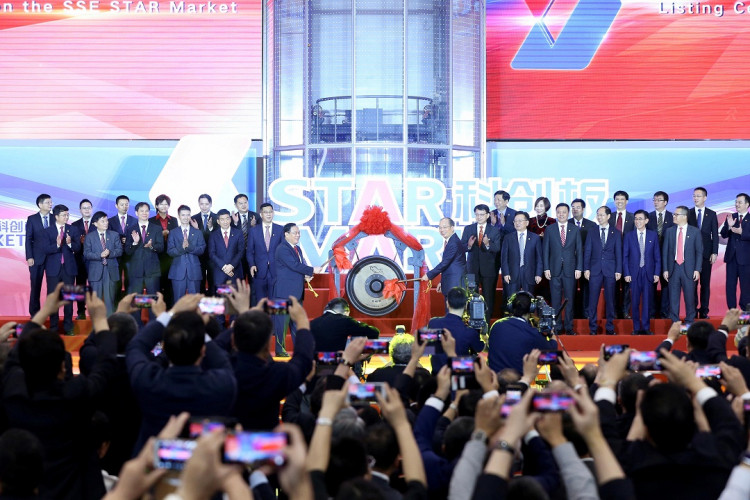The Shanghai Stock Exchange's latest attempt to establish a follow up to its popular NASDAQ-style Star Market has hit a roadblock. The bourse announced that it has now canceled the launch of its new index, which was originally planned to be made public on Wednesday.
The exchange's Star Market was originally launched late July and was very well received by inventors. Companies listed on the technology innovation board managed to make some very wild gains during the first few weeks as investors poured in to place their bets on the possible next Microsoft or Alibaba.
The Star Market recently welcomed its latest member on Monday this week, bringing the total number of companies on the board to 34.
However, the bourse attempt to launch a second index has now apparently failed due to two main factors.
The first reason that was given was that there were apparently too few companies on the board to justify the establishment of a new index. The second reason was that the companies that were meant to be listed were simply too small in size.
As of the moment, the companies listed on Shanghai's Star Market are relatively smaller when compared to the firms listed on indexes in other exchanges in China. This includes the main indexes in Shanghai and other tech-focused indexes in Shenzhen.
In its statement, the Shanghai exchange explained that the companies listed on the Star Market are currently still very new and there needs to be ample time for them to mature to more accurate give a better picture of the entire market.
Investors are apparently still watching the performance of the Star Market components to see how they evolve.
The exchange's answer to the United States' NASDAQ index had experienced wild fluctuations during its first weeks, with some companies gaining more than 400 percent from their IPO prices.
The average gain of the stocks on the index during its first day of trading was recorded at a whopping 140 percent, with Chinese firm Anji Microelectronics Technology having a 400 percent gain.
As of this week, more than 90 percent of the companies listed on the Star Market has lost about a third of their value as the prices corrected.
The initial extreme enthusiasm towards the newly listed companies has died down and investors are now making more reasonable trades. The valuations of the companies are of course still quite high, but now at more reasonable levels.
Shanghai initially wanted to create more or less the same scenario with the launch of a new index. However, the aforementioned factors have now forced them to slow down their plans.






